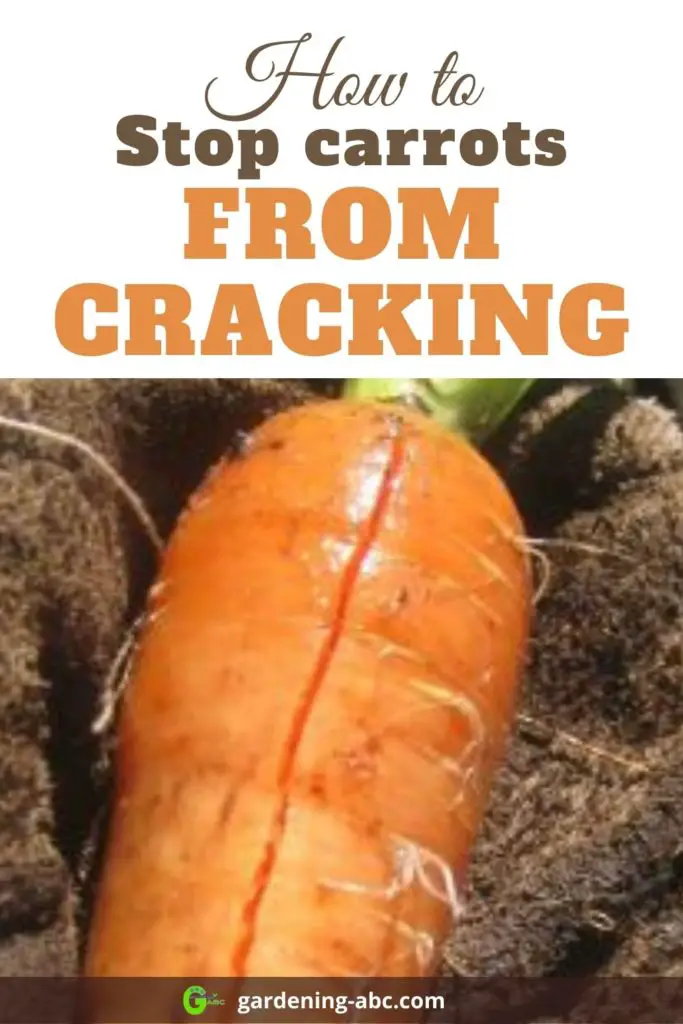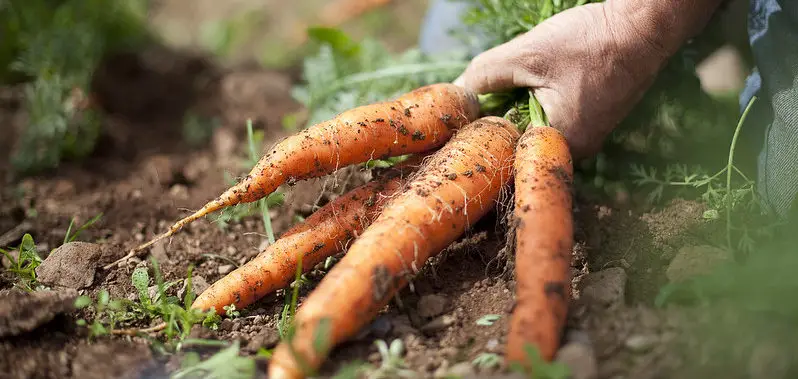We use affiliate links to run our site. When you buy through links on our site, we may earn an affiliate commission, without any added cost to you. Learn more
If you’re like most people, you’ve been through the frustration of watching your carrots crack and Split before you can even enjoy them. It’s a common problem that can seem impossible to solve.
In this post, however, we will give you some simple solutions that not only prevent your carrots from cracking and splitting but also makes them more flavorful and nutritious.
What Is A Cracked Carrot?
Cracking of carrots means a condition where the carrot roots split, usually lengthwise. The cracks can be more than one and often goes deep to the core of the root.
Cracking of roots is usually caused by fluctuation in moisture levels and is quite common in root crops like Beetroot, carrots, parsnips, radishes, etc.
Why Do Carrots Crack?
The main reason why your carrots are cracking is the irregular supply of water.
Although carrots don’t like waterlogging, you still have to keep the soil moist so that the carrots get enough water for their development. Lack of water in the soil can also cause woody, bitter or undeveloped carrots, besides cracking.
Cracking of carrots happens when after some time of lack of watering your soil gets a high dose of moisture, like sudden rainfall.
When the carrot roots get a huge amount of water and show a surge in growth. But their structure cannot support such growth.
This cracking is very common among large-rooted cultivars. The cracking of carrots is most common during summer.
Can You Eat Cracked Carrots?
Cracked carrots are perfectly alright for cooking unless they are infected with organisms that may have damaged the core of the carrots. Usually, such carrots will have discoloration and may have disoriented.
If lifted promptly, the cracked carrots may appear perfectly sound. They are still okay to eat, even if they are cracked.
Please note that when the carrot is cracked, you have to put some extra work into cleaning it. Dirt can get inside those cracks and it becomes a bit more challenging to clean out.
How to Stop Carrots From Cracking?
The best way to stop carrots from cracking is simply to improve the growing conditions of your carrots. Here are some common solutions:
1. Improve the soil quality:
Start with the quality of your soil. This will take some time and will not be done overnight.
Make sure it’s loose and well-drained so that water can move easily through it. If your soil is too compacted, your carrots may not get the moisture they need and will start to split.
Keep adding well-rotted manure and compost to the soil. Other than adding nutrients to the soil this will also increase the water-holding capacity of your soil.
2. Water regularly:
For steady growth, water your carrots regularly. This is very important particularly if you are using sandy soil. It’s important not to let the soil dry out too much, as that can cause the carrots to split.
3. Remove affected roots from the soil.
This will prevent the spreading of any kind of disease.
4. Grow split-resistant cultivars.
You can also try planting a split-resistant variety of carrots. These carrots have been bred to withstand the stress of drought conditions better than other varieties and can help reduce the risk of cracks, even if the other conditions aren’t perfect.
Conclusion:
There are a few simple things you can do to stop carrots from cracking. By following the tips above, you can ensure that your carrots will be fresh and crisp every time.
So why not give them a try? Your carrots will thank you!
We hope this post was helpful to you. If you like the information please feel free to share it with others too.
Like the post? Don’t forget to PIN IT

Amazon and the Amazon logo are trademarks of Amazon.com, Inc, or its affiliates.

Hi there! My name is Prasenjit and I’m an avid gardener and someone who has grown a passion for growing plants. From my hands-on experience, I have learned what works and what doesn’t. Here I share everything I have learned.
